Norway's Island Prison For Violent Criminals Looks Like No Prison We've Ever Seen
Bastøy Prison sits on Bastøy Island, a mile off the coast of Norway in a fjord, about 46 miles from the capital city of Oslo. Unlike other island prisons, like Alcatraz or Rikers, which are known for their brutal isolation, Bastøy Prison is known as one of the most liberal prisons in the world.

Here, 115 prisoners mostly live in communal houses, along with 69 prison employees, almost all of whom return to the mainland at day's end. Only five guards remain on the island during the night. The houses include kitchens, living rooms, and private bedrooms.
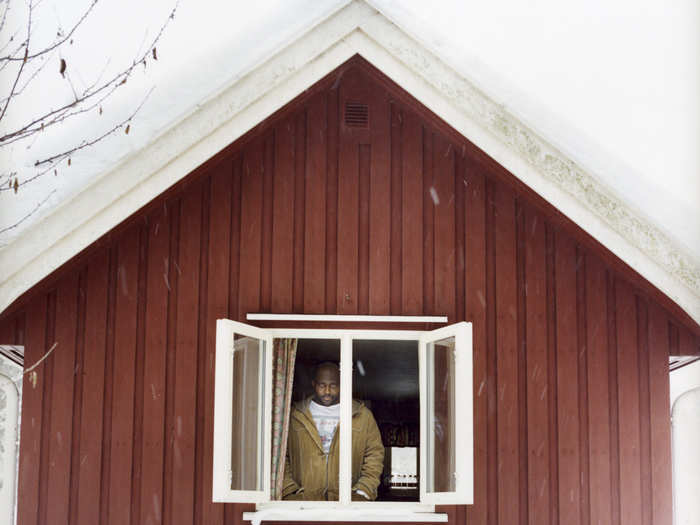
The basic principles of Bastøy Prison are ones of mutual respect and trust. Prisoners work together in a farm setting, tending to animals and woodworking. Given these responsibilities, officials hope to promote rehabilitation and learning, and lower repeat offenders.
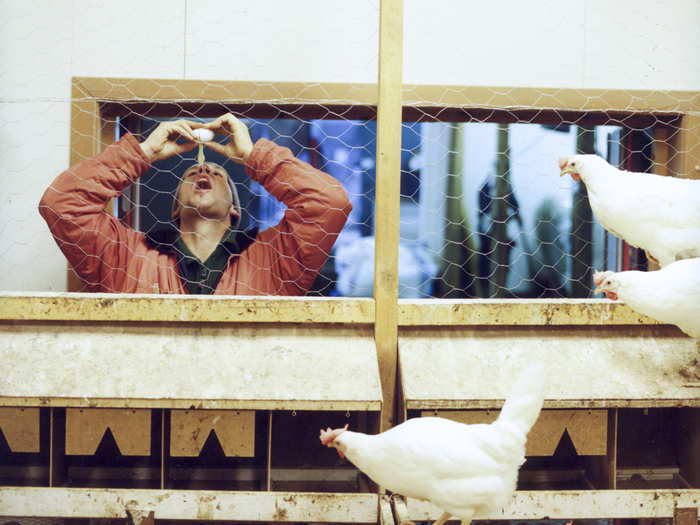
Along with working with animals, prisoners can engage in sports like skiing, fishing, running and strength training, tennis, horseback riding, and even swimming at their own private beach.
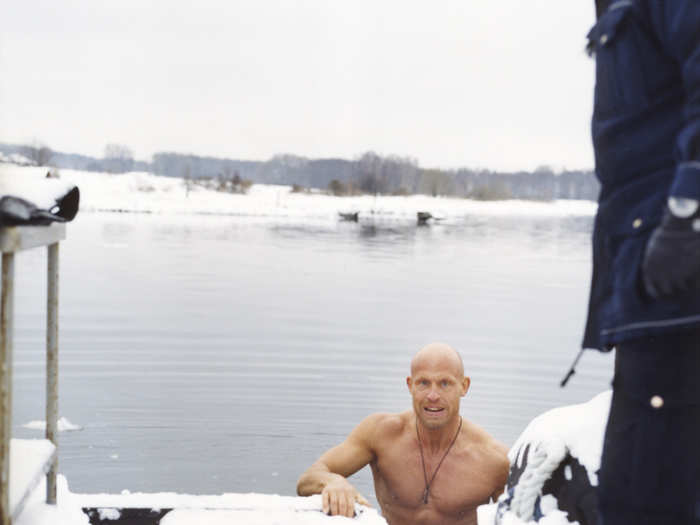
Believe it or not, Bastøy has another public beach, one that is open to any civilians (the prisoners are forbidden from using it). There are no fences or barricades here either, just warning signs. Keeping curious outsiders off the prison grounds can be a much bigger issue than stopping escaping convicts.
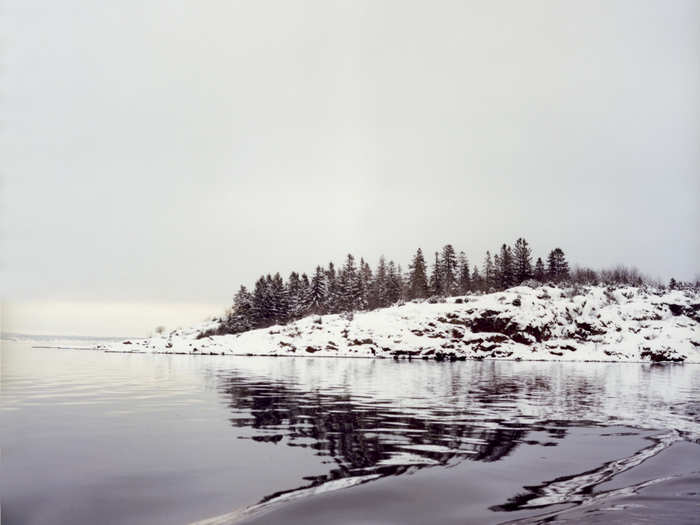
Eichhöfer says the island is idyllic and peaceful. He tells Business Insider that the prisoners are "so positive and eager to work and live in a community." "It almost feels too good to be true," he adds.
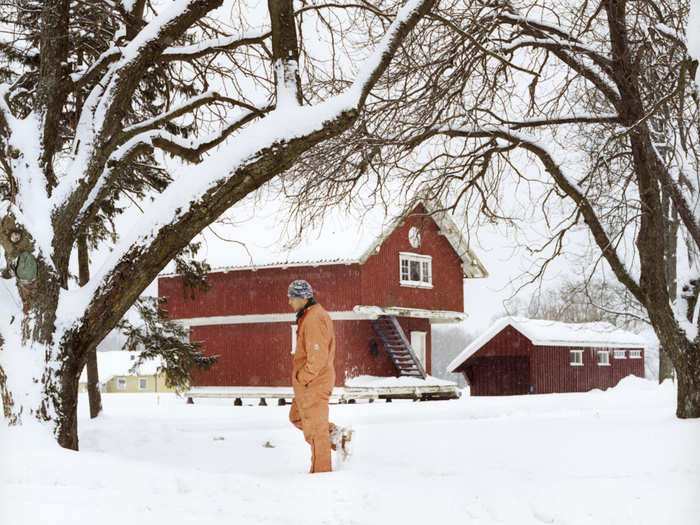
Many steps have been taken to make the prison ecologically responsible and sustainable. The very few cars on the island have all been converted to biodiesel and much of the transport and work on the island is done using the island's six horses.
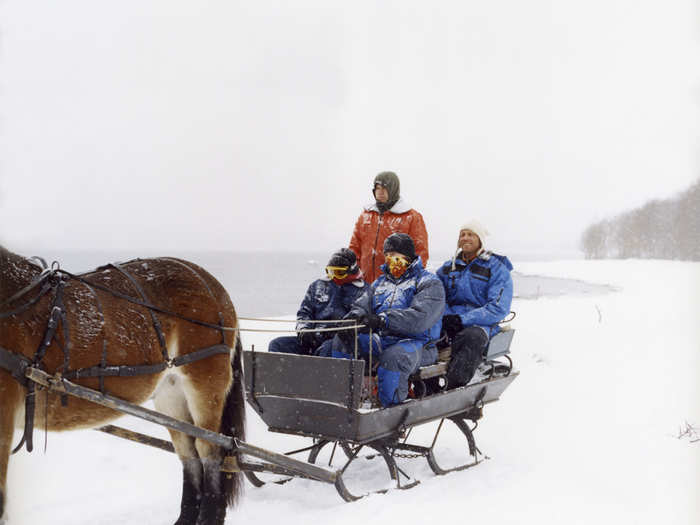
Much of the prison's facilities are heated by wood and a majority of the power needed is generated by its waste. By promoting a sense of responsibility for the island's animals and for its nature, prison officials hope to instill strong ethics of duty in the prisoners.
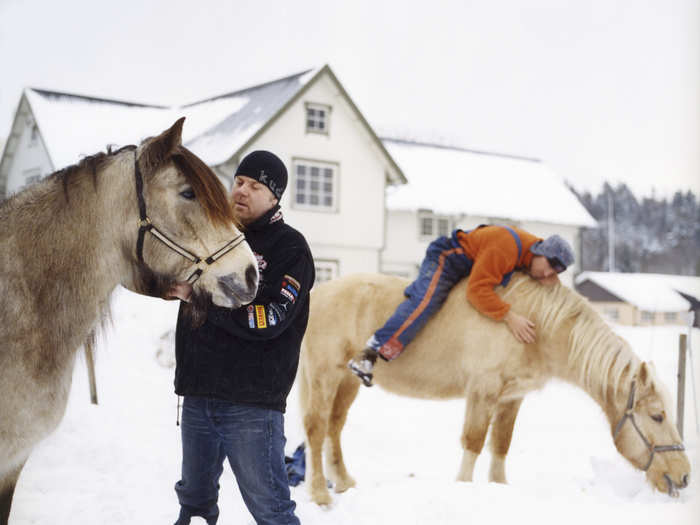
Prisoners must apply to come serve their time on Bastøy. They are vetted by officials, and prisoners who may pose a threat or disrupt their structure are denied. One of Bastøy Prison's most famous inmates was Arnfinn Nesset, who murdered 22 people, making him Norway's most infamous serial killer. Amazingly, he only served 12 years and was released for "good behavior."
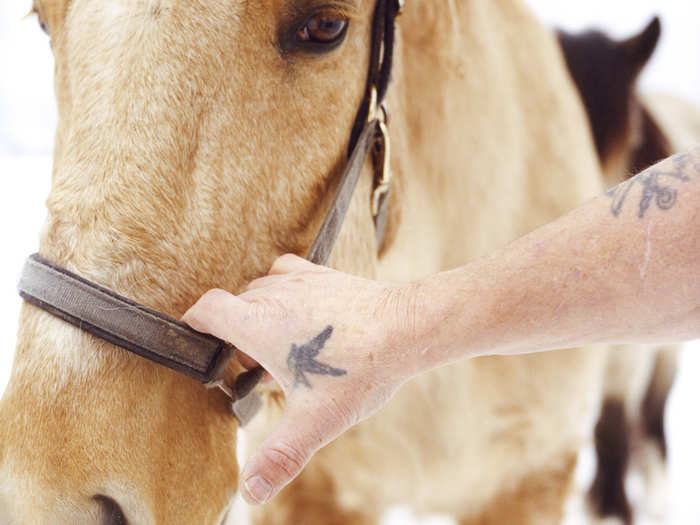
Eichhoefer says that at first, he was nervous interacting with prisoners, some of whom had killed people. But soon he realized that they posed no threat. "They are humans like you and me," he explained.
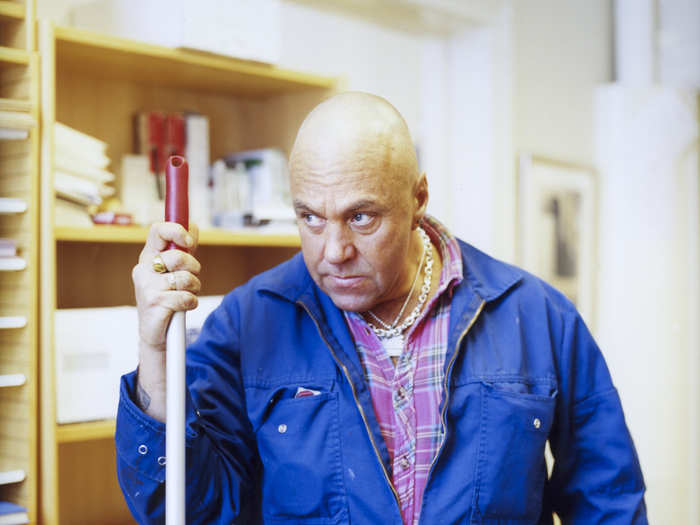
There are no walls or fences on the island. In the 32 years that Bastøy has been open, there has only been one escape attempt, when an inmate tried to take a boat to shore with a friend. They ended up capsizing and were caught. There's a strong incentive to not attempt escape: if you're caught, you're sent back to a more strict prison, a much worse place to be than Bastøy.
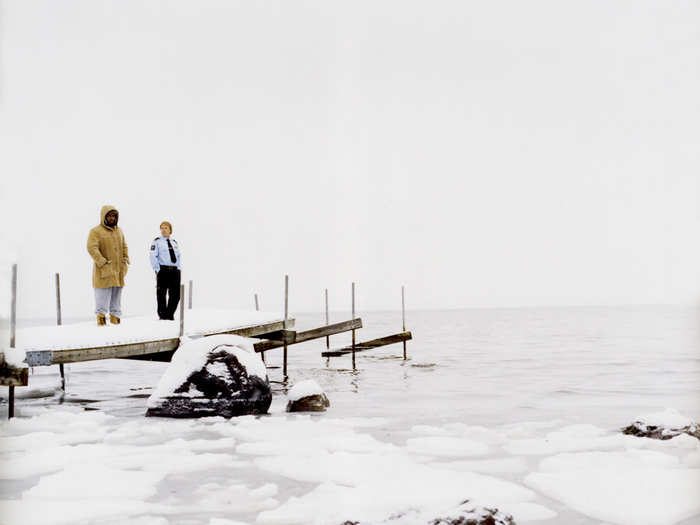
Initially, prisoners find integration into Bastøy to be a struggle. At a normal prison, inmates' daily lives are controlled very tightly. At Bastøy, they must keep their own schedules, make their own food, and report to duty on time. They also must attend anti-violence and (if needed) anti-drug training seminars.
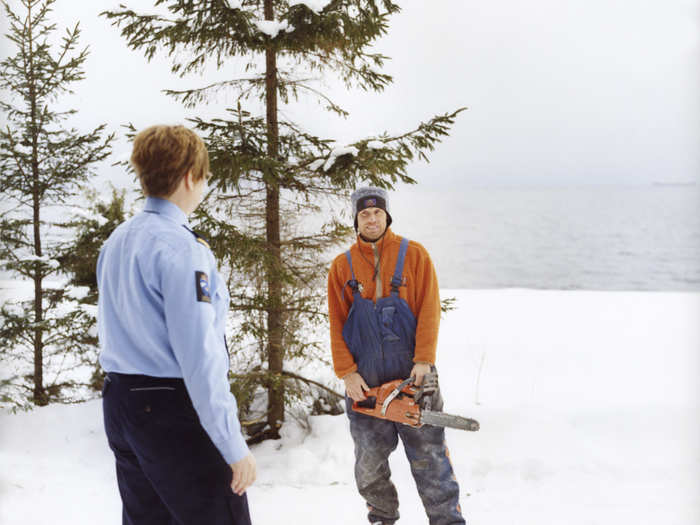
While prisoners are not allowed to have cell phones, they may use one of the five phone booths available. Prisoners are granted as many as three visits from outsiders a week. During these visits, the inmates are allowed to have sex with their guests.
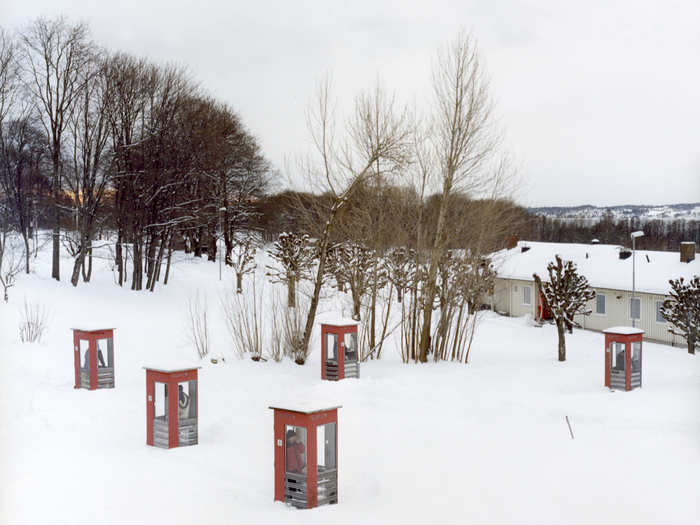
By many accounts, Bastøy Prison has been successful. In closed prisons, it is argued, a culture of violence and animosity between guards and prisoners, as well as prisoners and other prisoners, is allowed to flourish. Here, there is hardly any such violence.
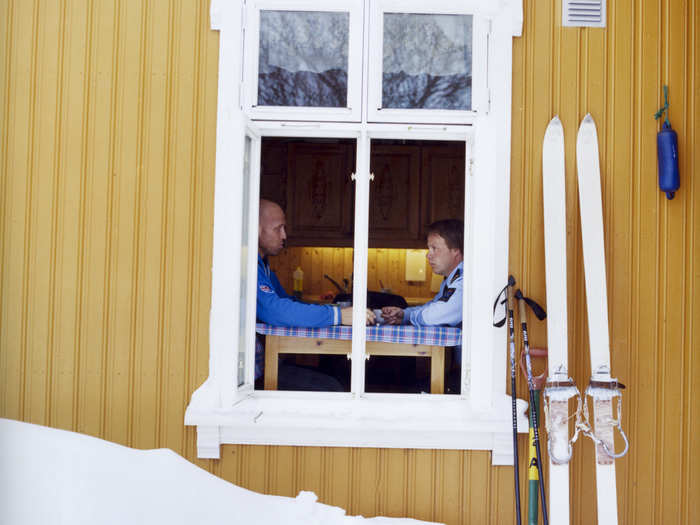
A prison like Bastøy is also much cheaper to run, as it requires fewer full-time guards and facilities.
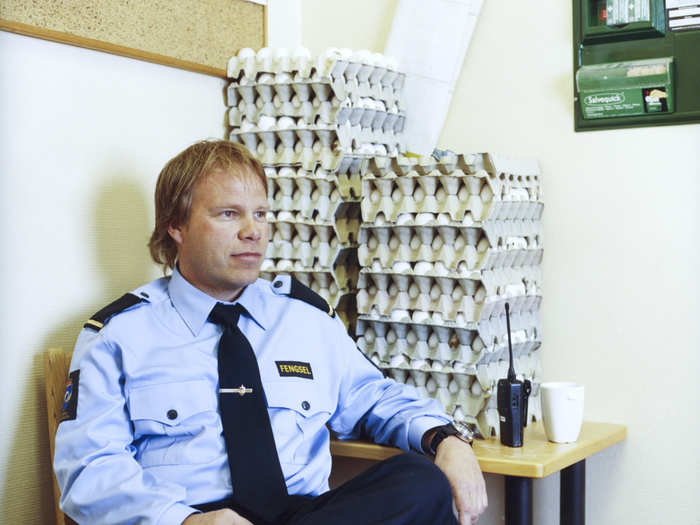
Recidivism rates at Bastøy Prison are reported to be 16%. Comparatively, the rest of Europe's rates are more than quadruple that, at 70%. The director of the prison, Arne Nilsen, says he often gets postcards from released prisoners, praising Bastøy for having changed them for the better.
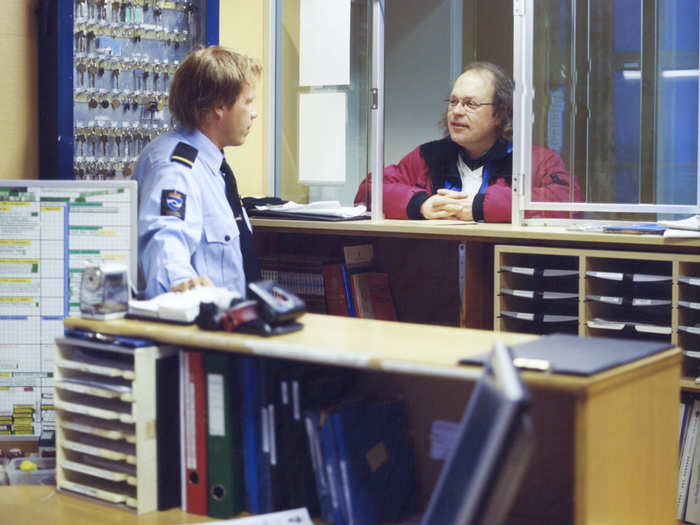
Eichhoefer, too, believes the concept of the prison is a positive one. "It gets people back into society. The idea of closing people away is not working, so it seems to be quite logical to try this in another way," he tells Business Insider.
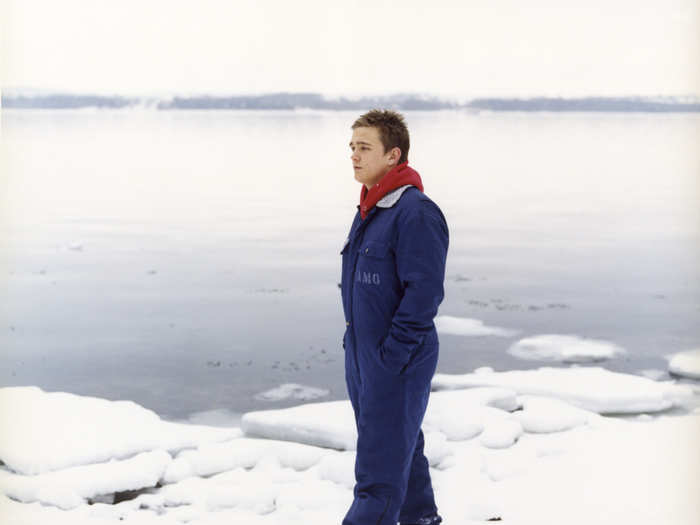
Law enforcement is definitely treated differently by our friends to the North...

Popular Right Now
Popular Keywords
Advertisement